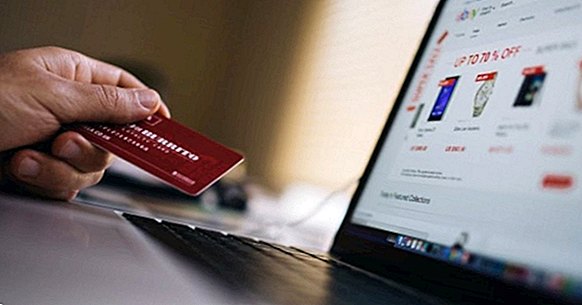6 psychological tricks to resist the January slope
Christmas may be the time of family reunions and emotional bonds that are strengthened, but it is no less true that, for many people, it also represents a significant economic drain.
The dinners and the large number of commitments linked to consumption cause spending to skyrocket during those days and come to the month of January with the bank account shaking .
Supporting the January slope
There are certain psychological keys to better cope with the month of January after getting used to the excesses of Christmas. This is a selection of the best.
1. Get away from the TV
The most attractive advertising pieces with the greatest capacity to attract attention are still on television. These are relatively long announcements, which can not be "passed quickly" to access the content we want to see and which, moreover, enter us by sight and by ear.
That's why during the January slope It is preferable not to be tempted by these commercials and to go either to the Internet or to the readings on paper , if you are looking for leisure without leaving home.
2. Write down a cost ceiling
Discipline is very important during the January cost, and that is why it is good to set a spending ceiling for this month.
To make this measure more complete. You can also convert that spending limit to two , one for each fortnight, or in four, to do it weekly. The closer in time these objectives are, the more effective their application will be.
3. Follow self-instructions when shopping
When you go out shopping, write down what you want to get before going out (or browsing an online store). That way it will be more difficult for you to fall into the temptation to make impulsive purchases.
4. Do not go shopping with hunger
Although it seems strange, we have described a curious psychological effect that occurs when we go shopping while having a feeling of hunger: we buy more. And not, we not only buy more food; we buy more of everything . You can read more about this finding in this article.
Therefore, make sure you have a full stomach before heading out to the stores. In this way, your rational part will have a greater capacity for maneuver and will not be dominated by desires.
5. Analyze prices rationally
Every time you go to buy something unexpected or you are hesitating between two brands of the same product, spend at least 20 seconds to think if you are considering whether to buy the most expensive for a reasonable reason or if you are being influenced by a marketing strategy that creates a need that you did not have before.
For example, a good first step is distrusting packs or versions of a product that are more expensive but they have an extra amount that is free. Will it really be useful to have that extra amount? Are you really looking for a product like that, you will get performance from all those qualities for which you pay?
6. If you have children, act exemplary
Resisting the January slope is also managing the domestic economy. If your sons or daughters see you spending as always or even more, they will learn that they can also continue to spend their savings as usual, regardless of external circumstances.
This is called vicarious learning, a concept developed by the psychologist Albert Bandura. In this case, vicarious learning implies that young people they have the feeling that it is not necessary to manage periods of scarcity, and will continue spending the money that has been given or demanding more.
That is why it is a good idea for the youngest to participate in the management of that small economic crisis that is the January cost and learn to spend less on these dates.



















